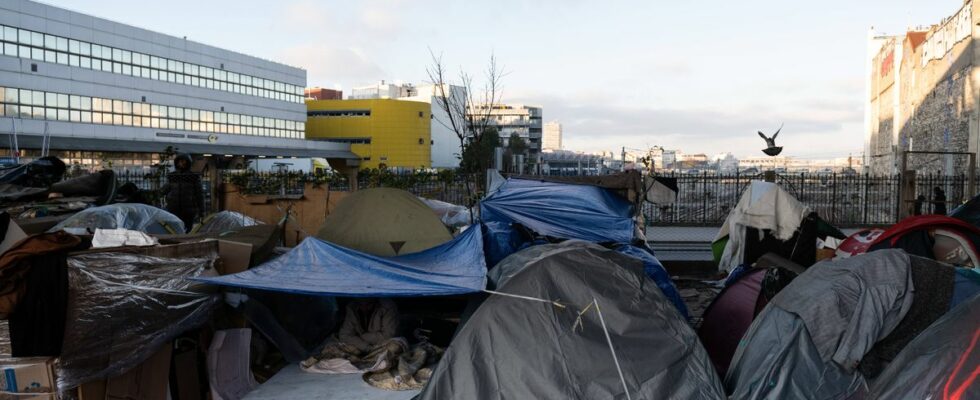Principle of territorial justice or desire to “clean up” the capital before the Olympics? The State will create thirteen reception areas for migrants in thirteen regions of France, which will be used to house asylum seekers, refugees and other homeless populations from camps in Ile-de-France, while examine their situation before redispatching them elsewhere, according to information from 20 minutes.
“There are 13 airlocks” confirms the Federation of Solidarity Actors, ie one airlock per region of metropolitan France. “They are opening a dozen airlocks which will receive 50 migrants from the camps every three weeks”, also tells us Philippe Crémer, municipal councilor responsible for the reception of the homeless and the support of migrants in the city of Besançon. The Besançon capital is indeed one of the first to open the ball. The region is the only one for which a notice of call for projects was published, for a structure “with a capacity of 50 places”. We learn that the government plan plans to welcome “up to 600 people per month”.
Everyone on the bus, without distinction
Requested by 20 minutes, the General Directorate for Foreigners explains to us: “Sheltering operations are regularly implemented, on the initiative of the Ile-de-France regional prefecture, for the benefit of people living in camps or precarious accommodation in Paris and Ile-de-France. The creation of “airlocks” for reception and orientation in the region currently envisaged aims to consolidate the framework of these sheltering operations and to allow the examination of the administrative situation of the people who benefit from them”. However, the prefecture did not answer our questions about the cities concerned and the number of migrants targeted.
The novelty of this system lies, according to Cimade, in the fact that not only asylum seekers and refugees will be taken care of, as in the classic reception and situation examination centers (CAES), but also without papers, people who have already been rejected, in short, anyone agreeing to board the buses made available by the regional prefecture and who are the subject of a “sheltering” operation or the dismantling of a camp , like what happened on October 27 at the Porte de la Chapelle. “Usually, people have already been registered as asylum seekers and are referred by the French Office for Immigration and Integration (Ofii). There, the orientation precedes the examination of the administrative situation,” explains Gérard Sadik, responsible for asylum issues at La Cimade.
Fears of associations
With the approach of the Olympic Games, accommodation facilities are saturated. Many hotels that welcome migrants have decided to get a makeover before the arrival of the influx of tourists, and the prefecture is struggling to find places to stay. Not to mention the fact that Paris and Ile-de-France already receive many more migrants than the rest of France. The desire to distribute this burden to other regions therefore appears justified to the associations we contacted, but they are concerned about the way in which this system is implemented, in particular for people who have already been dismissed from the right of asylum: “We fear that these orientations in the region are also made to fill the administrative detention centers (which retain foreigners who do not have the right to stay in France). If the objective is to send back, it’s disgusting, “explains Yann Manzi, co-founder of Utopia 56. “What will happen to these people? also asks Gérard Sadik.
It is also the way in which these shelters are carried out that worries the associations. Migrants boarding the buses are faced with a form of ultimatum: either they accept, once there, the accommodation offered to them, or they lose the right to be accommodated. They cannot choose their destination upstream and often have no information on the place which awaits them, or even do not even know in which city they disembark. This is why Yann Manzi would like social support to be provided upstream “so that people can project themselves into the future”. “We have seen people who were put on buses and arrived in sordid places, some leave these places and when they return to Paris they no longer have their rights to reception”, adds the manager of Utopia 56 And to conclude: “Of course, everyone must share the reception of exiles, but there needs to be work upstream so that people are sure that the conditions offered to them are worthy”.

